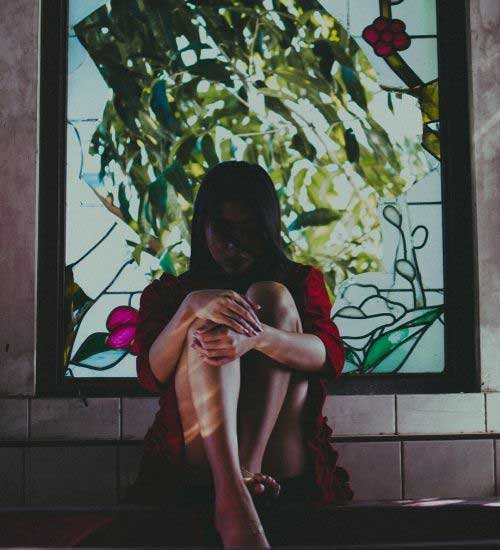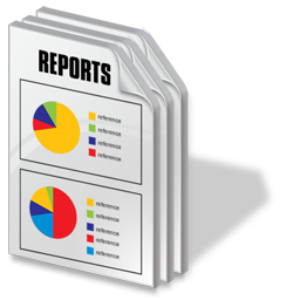
Depression Types: It’s common to feel down sometimes; however, most of the time, if you feel unhappy and it disturbs your regular life, you may have medicinal depression.
You can overcome this condition by taking medicines, or going to a psychoanalyst, or changing your lifestyle.
There are many types of depression. Daily activities can occur some, and chemical processes in the brain can cause others.
Whatever the reason, take an initiative and inform the doctor about your feeling.
They might send you a mental health doctor to help find the most common types of depression you have.
This analysis is vital in finding out the correct treatment of depression for you.

The Most Common Types of Depression:
1. Major Depression
You may hear your doctor say this “major depressive disorder. This is one of the most common types of depression if you feel unhappy most of the days of the week.
Read More: 8 Physical Symptoms of Chronic Depression and Anxiety
Other Symptoms of Major Depression:
- Loss of interest or liking in daily events.
- Weight gain or loss.
- Insomnia or feeling drowsy during the day.
- Feeling stressed, exhausted, restless, lazy and loss of energy
- The worthless or uncomfortable feeling
- Trouble thinking or making judgments
- Suicidal feeling
The doctor might make a diagnosis if you have five or more symptoms of major depression for two weeks or longer.
Talking therapy can help.
Visit a mental health expert who can find some ways to cure depression.
The antidepressant drug can also be helpful.
When medicine and therapy don’t work, two other alternatives your doctor may advise are:
- Repetitive transcranial magnetic stimulation (rTMS)
- Electroconvulsive therapy (ECT)
ECT uses electrical pulses, and rTMS uses a particular type of magnet to stimulate a specific part of your brain activity. It helps the particular parts of your brain that manage your mood to work better.
2. Persistent Depressive Disorder:
If depression continues for two years or longer, it’s known as persistent depressive disorder.
Previously, this term was described as two conditions like chronic major depression and dysthymia (minor persistent depression).
Other Symptoms of Persistent Depressive Disorder, for example:
- Change in your taste.
- Tiredness or lack of energy
- Sleep problems
- Low self-confidence
- Trouble IN focusing or making decisions
- Feel saddened
You may be cured through applying medicines or psychotherapy, or both two.
Read More: How to deal with Depression and Anxiety:10 Best Ways
3. Bipolar Disorder:
The most common types of depression are “bipolar disorder,” which is also called as “manic depression.”
A person with bipolar disorder has mood fluctuation range from high to low during the day.
At what time you’re in the low stage, you’ll have major depression symptoms.
Medicines can help get back your mood bounces under control.
Either you have a high or a low level, your doctor will prescribe taking a mood stabilizer, like, lithium.
The FDA has approved the following three medicines to handle the depressed period:
- Latuda
- Seroquel
- Olanzapine-fluoxetine mixture
Doctors occasionally suggest other medications “off-label” for bipolar depression, for example, the anticonvulsant lamotrigine.
Traditional antidepressant medicines are not always worked for the primary treatments of bipolar depression.
According to research, these pills are more useful than a placebo (a sugar pill) in controlling depression for bipolar disorder.
Besides, taking traditional antidepressant drugs may increase the possibility of occurring illness for some people with bipolar disorders.
Psychotherapy can help both you and your family.
4. Seasonal Affective Disorder (SAD):
The seasonal affective disorder is one of the most common types of depression that most regularly occurs during winter, when the days become short, and you get less sunshine.
It commonly goes away in spring and summer.
If you have Seasonal Affective Disorder, an antidepressant drug can help. Try to take light therapy daily.
You’ll require to sit in front of a bright lightbox for about 15-20 minutes daily.
Read More: 8 Best Essential Oils for Depression that Boost Your Mood
5. Psychotic Depression:
People with psychotic depression have major depression symptoms along with “psychotic” signs, for example:
- Hallucinations or illusions (hearing or seeing things that aren’t present)
- Misbeliefs (false beliefs)
- Paranoia (mistakenly trusting somebody who hurt you)
A mixture of antidepressant and neuroleptic drugs can control psychotic depression.
Electroconvulsive therapy may also be a good selection.
6. Peripartum (Postpartum) Depression:
Women with major depression like five to twenty-five days after giving birth may suffer from peripartum depression.
Antidepressants can help in treating major depression, which is not linked to giving birth.
7. Premenstrual Dysphoric Disorder (PMDD)
Women with Premenstrual Dysphoric Disorder have depression and other symptoms such as:
- Mood swings
- Irritability
- Nervousness
- Trouble thinking
- Exhaustion
- Change in craving or sleep habits
- Feelings of being speechless
Antidepressant drugs or occasionally oral contraceptives can care for Premenstrual Dysphoric Disorder.
8. Situational’ Depression:
This isn’t a methodological term in psychiatry.
But you might have a sad condition, if you can’t handle a hectic experience in your life, like, a death in your family member, or a divorce or losing a job.
Doctors may call this “stress replying disorder.”
Psychotherapy may help you cure the depression connected to a stressful situation.
Read More: Home Remedies for Depression: 5 best Depression Home Remedies
9. Atypical Depression:
It is different than the typical long-term depression. It is also regarded to be a “specifier” that describes a form of depressive symptoms. If you have atypical depression, a decisive event can boost your mood shortly.
Other symptoms of atypical depression, such as:
- Increased level of craving.
- Sleeping or dizziness more than normal
- Feeling of bulk weight in arms and legs
- Feeling to displeasure
Antidepressant medications can help. Your doctor may advise taking- “Selective-serotonin reuptake inhibitor “as the first-stage treatment.
They may also suggest a traditional antidepressant drug called “monoamine oxidase inhibitor” which has been well-researched in curing atypical depression.








